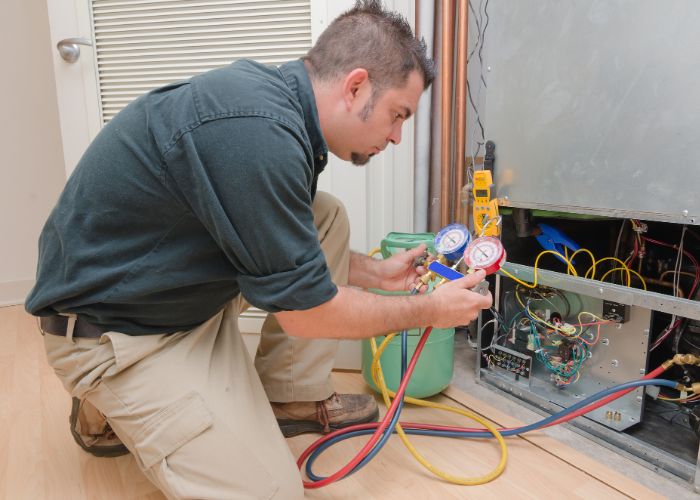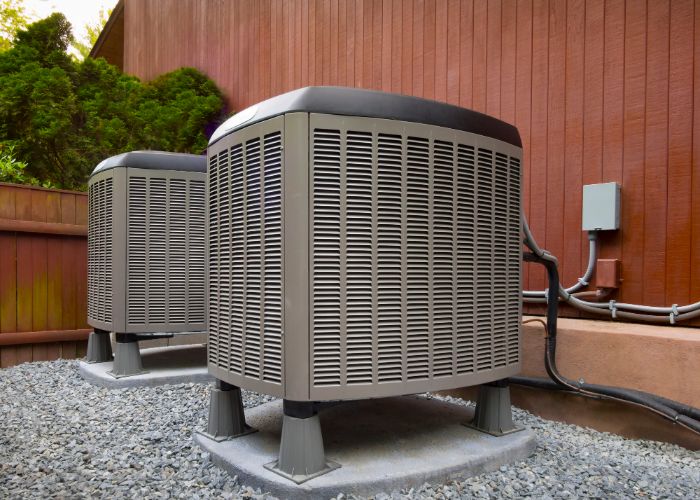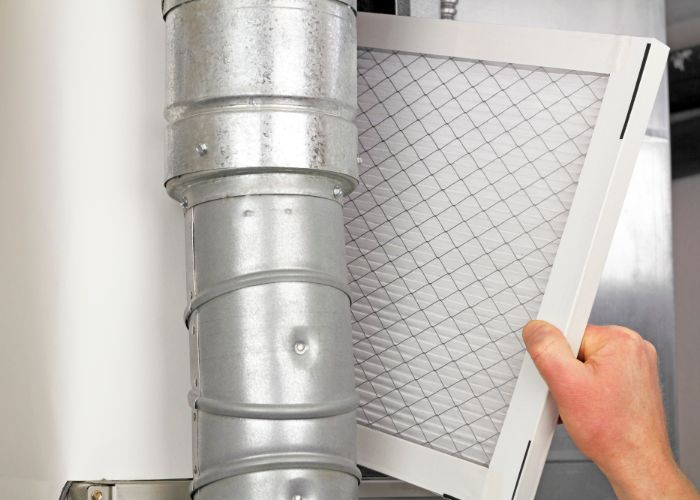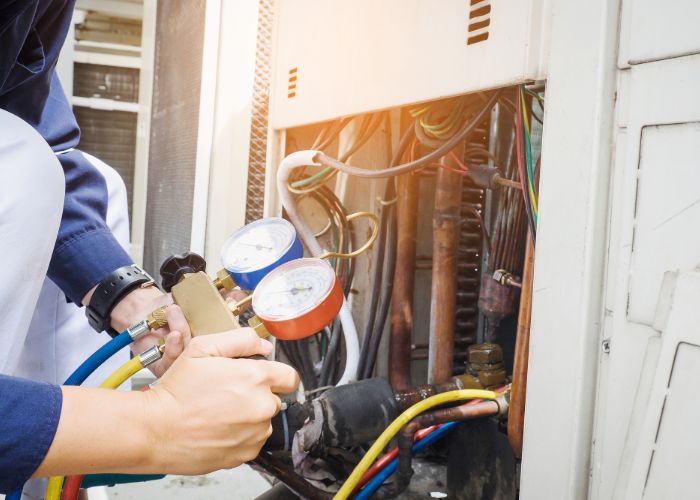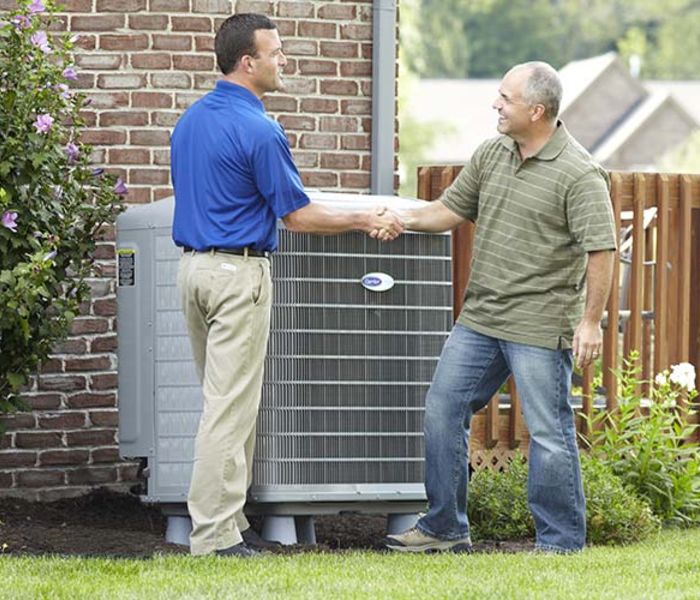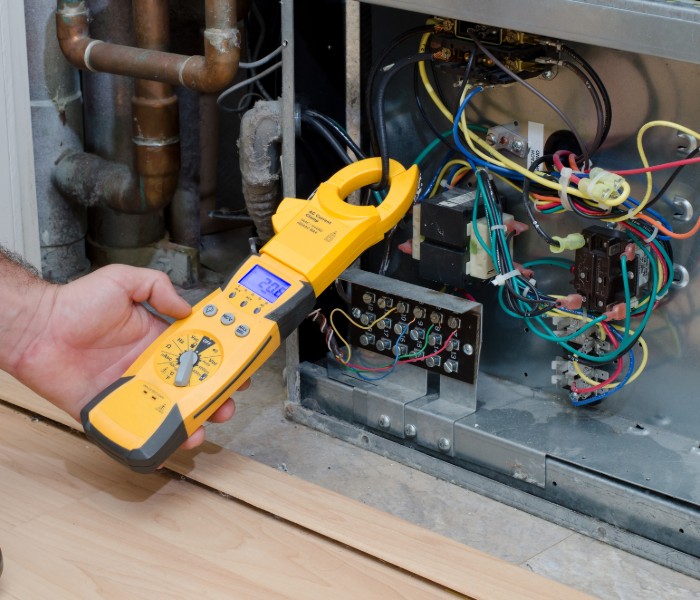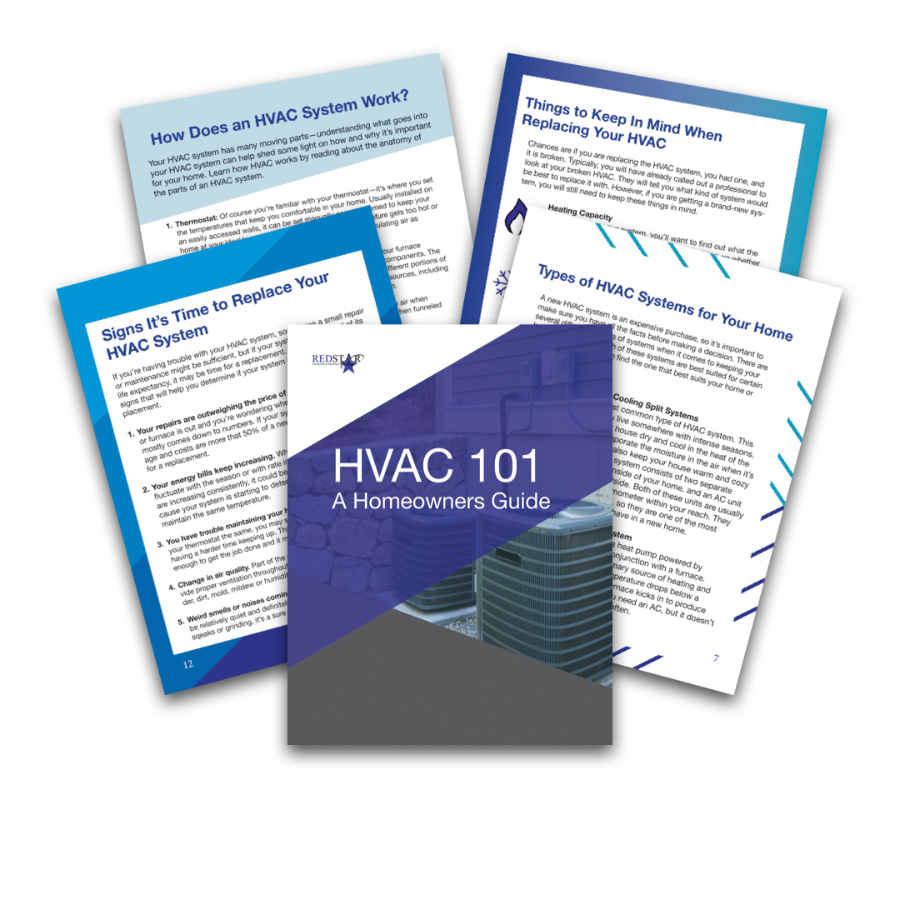Sharing is caring!
Are air conditioning tune-ups worth it?
This is vital for homeowners to consider, as an AC tune-up can cost hundreds of dollars, and certainly, no one wants to spend money on something that offers nothing of value in return!

Air conditioning tune-ups are an excellent investment for your home, ensuring your AC unit is functioning optimally and efficiently while avoiding early breakdown and unnecessary repair bills.
Air conditioning tune-ups can even increase the expected lifespan of an HVAC system by reducing wear and tear. AC tune-ups also lower your utility costs! To ensure you’re doing everything you can to keep your home’s AC unit in tiptop shape, check out 7 reasons why air conditioning tune-ups are worth the cost, and some commonly asked questions about this service as well.
7 Reasons Air Conditioning Tune-ups Are Worth It
Check out 7 good reasons why AC tune-ups are worth the cost and be sure to discuss this information with an HVAC repair person near you as needed.
1. AC tune-ups cost less than most repairs
One excellent reason to invest in AC tune-ups is that they will spot common air conditioning issues that, if left unchecked, can become very costly to fix down the road. For example, a clogged condensate drain can mean an overheated unit and, in turn, added wear and tear that often results in a worn motor or blower. An AC contractor can spot that clog during a tune-up call and address it right away before it causes significant damage to your unit.
2. An AC tune-up can increase efficiency
An air conditioner uses more energy to operate when parts are coated with dust, dirt, pet hair, leaves, twigs, and other such common debris. Most air conditioning tune-ups include a complete cleaning, removing these residues from the motor, blower, and outside grilles. Your air conditioner will use less energy and run more efficiently when you schedule regular AC tune-ups, saving you money in the long run.
3. Your warranty might require regular AC tune-ups!

A home AC unit might offer a warranty against damage and premature breakdown, but might also require regular AC tune-ups, to ensure those parts are cleaned and maintained over the years. Without those required tune-ups, you might face repair costs that would otherwise be covered under those warranties, and those costs can often be more expensive than a tune-up.
4. AC tune-ups tell you when it’s time for a new HVAC system
As a contractor performs an AC tune-up and other such maintenance work, he or she can evaluate your system and note if it’s running efficiently or if it seems to be nearing the end of its lifespan. Checking for wear around major parts such as the motor and blower or condenser coils can alert you to how many years you might expect the AC to continue operating. You can then budget and plan for a new unit as needed, and not be surprised with an unexpected shutdown right when you need your AC the most!
5. An AC tune-up can mean more accurate temperature readings
Most air conditioning contractors will calibrate a home’s thermostat during an AC tune-up or maintenance visit. A properly calibrated thermostat means that the AC will cycle on and off as needed to ensure your home stays at your set or desired temperature. In turn, you might need to adjust that thermostat far less often and won’t waste money because the AC stays on longer than expected when you invest in regular AC tune-up visits.
6. HVAC tune-ups mean better indoor air quality
A home air conditioner works by pulling air from indoor spaces and then running it over an evaporator or condenser coil, to remove heat from the air. In the process, the AC usually pulls that air over a filter as well, to trap dust, airborne dirt, allergens, and other such debris.
The more efficient your home’s air conditioner, the more air it will pull from indoor spaces, which means the more air it will filter during this process. HVAC tune-ups can then mean better indoor air quality and easier breathing overall!
7. An AC tune-up can alert you to needed maintenance throughout the year

If a homeowner neglects to change the furnace filter or cleaning the outside air conditioner compressor, this can mean added wear and tear on the unit and premature breakdown. An air conditioner contractor can note if the filter is changed as needed and if the compressor is clean and free of debris, or if the homeowner might need to maintain their HVAC system more often throughout the year! If they notice you’ve been neglecting your HVAC unit or could better maintain it in any way, their personalized recommendations can mean a more efficient AC system and less risk of breakdown.
How Often Should an AC Be Tuned Up?
Most homeowners would do well to schedule an AC tune-up every year or every other year. Annual tune-ups are especially vital in areas where the air conditioner is used more often than average, such as tropical or desert areas with long, hot summers!
Regular AC tune-ups are also vital for older units that are already suffering some wear and tear. Keeping that air conditioner clean, oiled, and maintained properly ensures that it will operate as expected and can help prolong its life overall.
What's Included with Your AC Tune-up
While every HVAC contractor offers different services, most AC tune-ups include:
- Inspecting refrigerant levels and checking for leaks
- Testing all the electrical wiring and replacing wires and connectors as needed
- Checking and oiling the bearings
- Checking the belts connecting various moving parts and replacing them as needed
- Noting the performance of the motor and blower, ensuring the blower blades move freely
- Cleaning the condenser coil
- Cleaning the outside grilles of the condenser housing unit
- Calibrating the thermostat
- Changing the furnace filter
The HVAC system will also get a thorough cleaning and dusting. Some contractors might also check the home’s ductwork, to note if it needs cleaning or repairs. Your AC contractor should also note any issues you’re having with the unit and check for needed repairs, and might also note its expected lifespan so you can budget for a new unit as needed!

How Long Does an AC Tune-up Take?
An average AC tune-up might take an hour; your HVAC tune-up will take longer if you have more than one compressor attached to the home’s air conditioning system. If the system needs a refrigerant recharge, this might add another 30 to 45 minutes to your visit.
The Cost to Tune Up an Air Conditioner
Again, every AC contractor is different when it comes to their rates as well as services offered, but most homeowners can expect to pay between $75 and $185 for an AC tune-up. If your unit needs refrigerant or other parts and wiring, those costs are added to this service visit fee.
What Happens If an AC Is Not Serviced?
Airflow through an HVAC system means lots of dust and debris buildup; that debris interferes with moving parts and can cause the AC to work harder than it should. Dust and other debris also hold heat, which also means an AC must work harder to remove that heat and cool circulating air!
Neglecting regular AC tune-ups allows that debris to build up over the years, causing unnecessary wear and tear on your system, risking premature breakdown. Replacing worn belts also reduces the risk of having one snap, and your system shutting down unexpectedly. Patching up leaks also means less refrigerant loss, so your system works efficiently and you avoid refrigerant replacement costs!
A homeowner might also be putting added wear and tear on the unit without realizing it; for example, by not changing the furnace filter as needed or by using a thermostat that needs calibrating. Noting these issues during an AC tune-up can mean making needed fixes and better AC maintenance throughout the year, so the unit runs efficiently and lasts as long as possible.
Making Your Air Conditioner More Efficient

Other than your water heater, your home’s air conditioner is probably the biggest energy user in the home! During summer months, an air conditioner can account for some 70% of your utility costs, and these costs are higher the longer you go without a needed tune-up and the more wear and tear the AC suffers. Note a few ways you can ensure your air conditioner is operating as efficiently as possible:
- Clean the home’s vents and ductwork regularly. Dust, dirt, pet hair, and other buildups along the vents or inside ducts force the air conditioner to work harder to push air through those ducts, and can also trap and hold heat, which also keeps the AC working harder to remove that heat and cool circulating air!
- Seal up gaps around doorjambs and window frames. Use weather-stripping if needed, or add a line of caulk around windows to close those gaps and keep hot air out and cool air inside the home!
- It’s also vital that you seal any cracks along walls, ceilings, or the home’s foundation. These cracks also let out your cooled air while letting in outside heat and humidity.
- Ensure the home’s roof vents are not blocked. These vents let out heat as it rises. Blocked vents can mean trapped heat and humidity and an overworked AC unit.
- Air conditioners need to vent hot air as they operate, so it’s vital that a condenser housing unit or vent hose remain unobstructed, with room enough for proper air circulation. If you have a split system unit, ensure the vent hose opening is not covered by twigs, storm debris, or nests. For central AC units, clean away debris clinging to the outdoor housing unit.
- Keep heat-producing appliances away from the home’s thermostat so it can read room temperatures properly. This includes lamps, as even light bulbs can produce enough heat to interfere with a thermostat!
- Block outside heat and sunlight as much as possible especially during the hottest daylight hours. If you enjoy a bright room, use sheers or apply window film that shades the room just slightly.
- Use a dehumidifier and air filter in the home, to remove humidity and trap airborne dust and debris which might otherwise end up on the air conditioner. This will help avoid excessive wear and tear on your home’s HVAC system.
Tuning Up Your Central Air Conditioner
A homeowner would do well to leave air conditioning tune-ups to the pros! An experienced HVAC contractor will know how to check for refrigerant leaks, properly oil bearings and other moving parts, and perform other maintenance tasks that a homeowner might overlook. He or she can also evaluate the system and note if it's suffering excessive wear and tear and if it’s time to replace the air conditioner rather than schedule repairs.
Rather than trying to tune up your home’s air conditioner yourself, consider instead replacing the furnace filter often and ensuring the compressor housing unit or split system vent hose is clear and free of debris, as said. You might also open the top panel to the compressor and give all the parts inside a good wipe down, removing dust and other debris. Ensure there are no obstructions or loose objects inside the unit before closing that panel.

You might also ask your HVAC contractor for added tips on how to maintain your home’s AC unit and keep it running optimally. He or she might suggest building a blind around the outside compressor unit, keeping that unit shaded, or replacing the home’s thermostat. Along with regular AC tune-ups, these simple steps can ensure your home’s HVAC system always functions optimally and efficiently.
Red Star Cooling & Heating hopes this information helps answer the question, are air conditioning tune-ups worth it. If you have more questions or need AC repair in Houston, The Woodlands, Spring, or anywhere in between, give us a call! We provide expert services and fast response times and stand behind all our work with a full guarantee you can trust.

